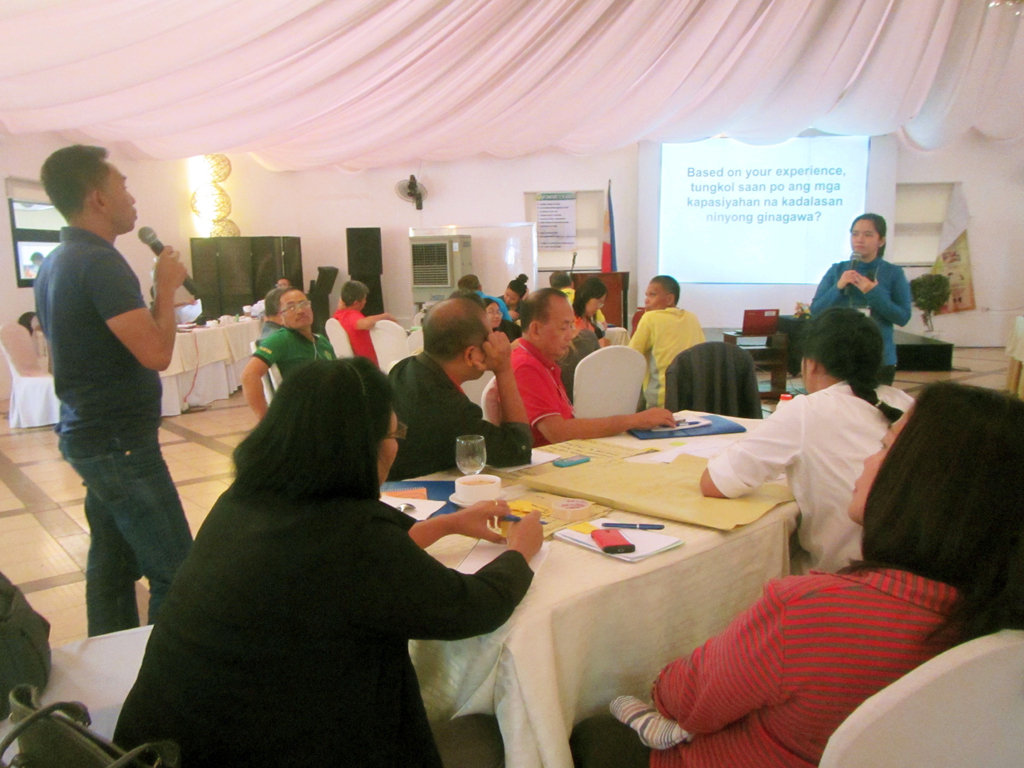
To further strengthen the capacities of the Advisory Special Bodies (ASBs) particularly the AFCs, PCAF conducted the pilot training of the Competency Advancement on Policy-making and Engagement for AFCs (AFC-CAPE) on September 13 to 16 in Azalea Hotels and Residences in Baguio City.
Almost 50 AFC volunteer-partners and coordinators from Region 3, together with 17 AFCs from other provinces participated in the four-day training.
PCAF partnered with the University of the Philippines-Center for Local and Regional Governance (UP-CLRG) to formalize and improve the participatory policy-making process within AFCs. One of the objectives of PCAF is to generate sound policy recommendations from the network of ASBs.
“PCAF-Capacity Development Section seeks the help of UP-CLRG to develop training modules that will capacitate the AFCs in terms of agenda setting, policy advocacy, preparation of policy resolutions and parliamentary procedures,” said UP-CLRG Dir. Erwin Gaspar Alampay.
UP-CLRG crafted and developed key learning guides that focused on three modules on policy-making. These include Policy Analysis and Development, Conduct of Effective Meetings, and Policy Advocacy Process.
As part of Policy Analysis and Development module, Dr. Michael Tumanut made a clear definition on what is policy where he discussed the procedure and step-by-step process in developing policy by identifying and structuring evidence-based problem.
On the other hand, Dr. Faina Diola discoursed about the Policy on Advocacy Process where she defined advocacy and its vast influence in terms of power and interest. She also shared planning advocacy strategies that are answerable by what, who and how.
The UP-CLRG also included the training on Preparation of Resolution which was discussed by Cris delos Santos. She mentioned that the main purpose of resolution is to express opinion, represent an advocacy and address urgent concerns.
One of the main tasks of the AFCs is to create policy resolutions. As part of the workshop, delos Santos asked the participants to submit sample resolutions where she aired her observations, corrections and recommendations. The output of the workshop served as guides in their preparation for future policy resolutions.
Meanwhile Raphael Montes, Jr. stated the rules in Conducting an Effective Meeting. He also discussed the 10 tenets of parliamentary procedures and its commonly used motions.
PCAF-Partnership Development Division representative Soledad Bernardo thanked the UP-CLRG which is under the National
College of Public Administration and Governance for providing their expertise and experience through the AFC-CAPE. She also encouraged the participants to embrace their role as volunteer-partners by crafting sound policy resolutions that promote the interest of farmers and fisherfolks.
Five more trainings are scheduled after the pilot workshop wherein 15 regions are grouped into five clusters. The clusters include regions 12, 13 and Autonomous Region in Muslim Mindanao; regions 1, 2 and Cordillera Autonomous Region; regions 4-A, 4-B and 5; regions 6, 7 and 8; and regions 9, 10 and 11.











